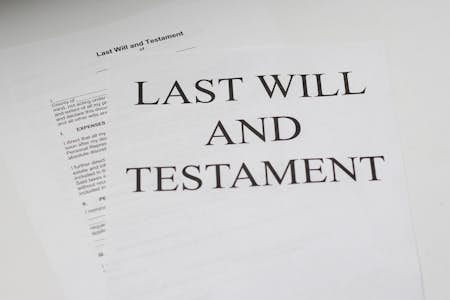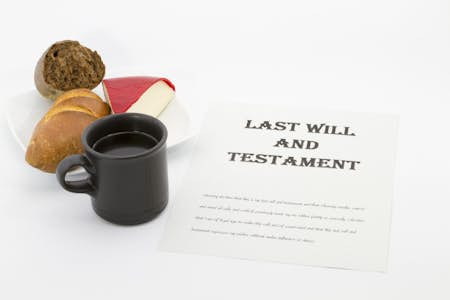A lasting power of attorney (LPA) is a legal document in which you appoint people to help you make decisions or make decisions on your behalf when you aren't able to. The person who creates the LPA is 'the donor', and the people appointed are 'the attorneys'. A lasting power of attorney has legal authority in England and Wales; a different system is in place in Northern Ireland and Scotland.
There are different types of power of attorney, one for financial affairs and property and the other for health and welfare. A financial and property LPA can be used for business or personal reasons. A donor can make one or both types of LPA and appoint different attorneys to act under each.
Lasting power of attorney for property and financial affairs
This LPA, often referred to as the financial affairs LPA, can be used for decisions on operating bank or building society accounts, buying and selling property, claiming benefits, and managing tax affairs. A donor can decide if the LPA should be used as soon as it's registered or only when mental capacity is lost. The donor can also stipulate, limit or restrict the decisions attorneys can make.
Lasting power of attorney for health and welfare
The decisions made under a health and welfare LPA concern all aspects of personal welfare, such as where the donor should live, the daily routine and day-to-day care matters. Decisions might include whether to give or refuse consent to medical care or treatment or authorise admission to a care home.
This type of LPA only comes into force once the donor has lost the mental capacity to make their own personal welfare decisions. Therefore, it is usually recommended that the donor discusses the LPA and their health situation with their GP and other relevant healthcare professionals like carers before committing to the appointment of attorneys.
Why have a lasting power of attorney?
A lasting power of attorney allows someone to make decisions on your behalf temporarily, perhaps because you are in hospital for a while and need to pay bills. An LPA is also very useful in a long-term health situation like dementia, where someone is losing mental capacity, and their affairs need to be looked after.
An LPA is often included as part of a will writing package. This makes provision for a time which may be well before death when a person loses mental capacity or is diagnosed with an illness that may stop them from making their own decisions in future.
Choosing an attorney
Start by choosing your attorney. You can have more than one attorney, and it can be helpful to do this in case a sole attorney cannot act for some reason. There is no limit to the number of people you can appoint as an attorney. If you choose multiple attorneys, you must decide whether they will make decisions together or separately. If you want joint decision-making, selecting personalities who will work well together is vital, which might rule out a particular family member!
Your attorney needs to be 18 or over and can be your spouse or partner, friends, relatives, or professionals like your solicitor. Whoever you appoint must have the mental capacity to make their own decisions. You don't need to choose someone who lives in the UK or is a British citizen. Still, it can be easier to make decisions if your attorney is readily available.
There are some guiding principles which can be helpful when it comes to choosing an attorney.
- Try and choose someone organised and financially knowledgeable for a financial affairs LPA
- Don’t choose someone you don’t know very well
- Pick someone you trust to make decisions in your best interests; they may be making care decisions or choosing the types of treatment you'll receive
- Don't persuade or compel a reluctant attorney; make sure they are happy to be appointed and understand what's involved
Appointing an attorney
A donor must have the mental capacity to make an LPA as defined under the Mental Capacity Act 2005. Someone is assumed to have mental capacity unless another party can prove it otherwise.
You will need to fill in the LPA forms, which you can do in paper format or online at GOV.UK. Your attorneys must sign the forms, and an independent party must witness their signatures.
The form will also need to be signed by someone called the ‘certificate provider’. A certificate provider is an independent person who confirms that the donor knows what they are doing and is not under any coercion or pressure or the subject of fraud. They must be someone who has known the donor for at least two years on a familiar basis, like a friend or neighbour, or a professional connection such as a solicitor or doctor.
The form must be signed in a particular order—the donor signs first, followed by the certificate provider and then the attorney(s). An independent party must witness all the signatures, and the donor and attorney(s) cannot witness each other's signing. It is a common mistake for the form to be signed in the wrong order.
You must register the LPA with the Office of the Public Guardian for it to be valid and legally enforceable. It can take up to 20 weeks for the LPA to be registered, although using the online service is usually quicker. It's essential to ensure the forms are correct and error-free, as this will only cause further delays.
Acting as an attorney under an LPA
An attorney must always act in the donor's best interests, which involves consulting the donor as much as possible in the decision-making process and taking into account their past and present feelings.
An attorney's duty is described as a duty of care in law, for which they can be held accountable, and this duty carries specific responsibilities. These include carrying out the donor's instructions, not delegating or abrogating authority and keeping the donor's personal information confidential unless there has been a prior agreement they can disclose it. In the case of a financial affairs LPA, the attorney must keep a record of payments made on behalf of the donor and keep the donor’s money separate from their own.
What is the Office of the Public Guardian?
The Office of the Public Guardian (OPG) is a government body that keeps a register of LPAs and investigates any complaints against attorneys, helping people in England and Wales to stay in control of decisions about their health and finance. In May 2022, the government announced significant reforms to improve the efficiency of the service and speed up applications. These include digitalising the entire process and bolstering safeguards to protect vulnerable people from abuse and fraud.
Enduring power of attorney and lasting power of attorney, what’s the difference?
Enduring power of attorney (EPA) and lasting power of attorney (LPA) are terms used interchangeably but have distinct differences under UK law. Confusion often arises because LPAs replaced EPAs, and both are types of power of attorney.
LPAs replaced EPAs in 2007, but EPAs signed before 1 October 2007 are still valid. Many people execute joint EPAs when writing a will, so they still exist. However, replacing EPAs with LPAs is advisable as LPAs offer greater flexibility over decision-making and the choice of attorneys. They also prevent fraudulent LPAs from being taken out for someone.
LPAs have several critical advantages over EPAs.
- With an LPA, the donor has to be certified to have mental capacity, so there can be absolutely no suggestion of coercion or fraud. A third party, who must have known the donor for at least two years and is not one of the attorneys, must complete a statement certifying the donor's mental capacity and that the donor understands the LPA and its scope. This person is designated as 'the certificate provider’.
- From the outset, all LPAs must be registered with the Office of the Public Guardian. In contrast, EPAs can only be registered once the donor has lost mental capacity. As such, attorneys may not be able to use the powers granted under the EPA when they most need them, for example, to sell a property to pay medical expenses and care fees.
- With an EPA, the attorneys make the application, not the donor. So there is always a possible risk of exploitation or attorneys trying to gain fraudulent control against the donor's wishes or without their knowledge.
- EPAs only cover financial decisions and not health and welfare decisions. Therefore, if there is only an EPA in place, relatives will have to apply to the Court of Protection to act as a guardian in matters of health and personal care.
- LPAs are more flexible regarding the appointment of attorneys, too. For example, LPAs make provisions for appointing replacement attorneys, including children, to replace a spouse who has lost mental capacity, no longer wishes to act, or has died.
- LPAs allow the donor to give specific instructions about what attorneys may or may not do and stipulate preferences about certain financial or healthcare decisions.
Registering a new LPA automatically supersedes an existing EPA, which is the only way to get rid of an EPA.





